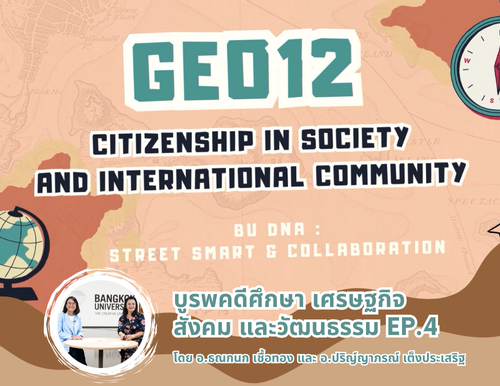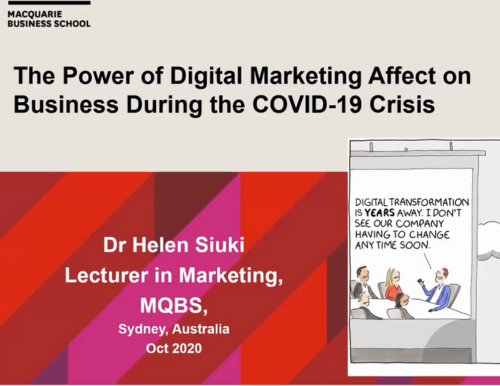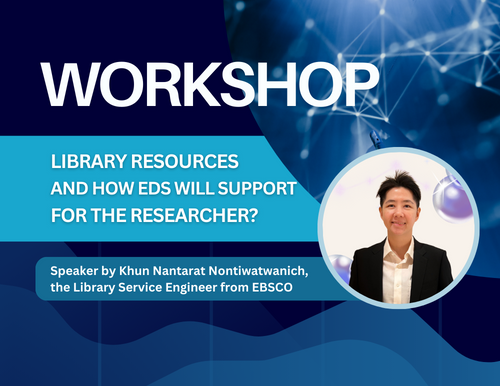The EBSCO database involves searching and accessing high-quality academic articles and research. The steps include targeted searching, reading, downloading, and saving desired articles in the system. Filters and advanced search functions help narrow down results to better match specific needs.
การทำงานในยุคปัจจุบันและอนาคตจะต้องพึ่งพาข้อมูลและเทคโนโลยีอย่างมาก คนที่สามารถวิเคราะห์ข้อมูลและใช้เทคโนโลยีได้อย่างมีประสิทธิภาพจะมีข้อได้เปรียบในการแข่งขันในตลาดแรงงาน การมีทักษะที่ทันสมัยจะช่วยให้สามารถตอบสนองต่อการเปลี่ยนแปลงของอุตสาหกรรมและนวัตกรรมใหม่ๆ ได้ดีขึ้น โดย คุณกล้า ตั้งสุวรรณ
Orientalism เป็นแนวคิดทางวิชาการและสังคมที่เกี่ยวข้องกับการศึกษาและการนำเสนอภาพลักษณ์ของโลกตะวันออก โดยเฉพาะในแง่มุมของเศรษฐกิจ สังคม และวัฒนธรรม
โดย อ.ธณกนก เชื้อทอง และ อ.ปริญ์ญาภรณ์ เต็งประเสริฐ
The COVID-19 pandemic significantly impacted businesses worldwide, and digital marketing played a crucial role in helping companies adapt and survive during the crisis, and some key effects of digital marketing on businesses during the COVID-19 pandemic By Siuki, Helen
Talk on strategic marketing communications & brand collaboration strategy by Khun Angsana Puangmalit, Communication Art Major, Bangkok University International
Lao economy, Lao job market & labor law, AEC and labor mobility, demand for talents, get yourself ready and about 108JOB By Keovisouk Dalasane
Lao economy, Lao job market & labor law, AEC and labor mobility, demand for talents, get yourself ready and about 108JOB By Keovisouk Dalasane
Lao economy, Lao job market & labor law, AEC and labor mobility, demand for talents, get yourself ready and about 108JOB By Keovisouk Dalasane
This workshop covers advanced searching and the more sophisticated of databases in the EBSCOhost platform. Library Resources, What is EDS and how it works?, Techniques in “Feature & Setting”, How EDS support the researcher. By Nantarat Nontiwatwanich on January 20, 2024
การบรรยายแบบออนไลน์ เรื่อง Artificial Intelligence Technology
โดย Dr. Win Voravuthikunchai, Founder & CEO Botnoi Group
เมื่อวันที่ 24 มีนาคม 2564
เป็นส่วนหนึ่งของวิชา GI282 Disruptive Innovation ปีการศึกษา 2563







